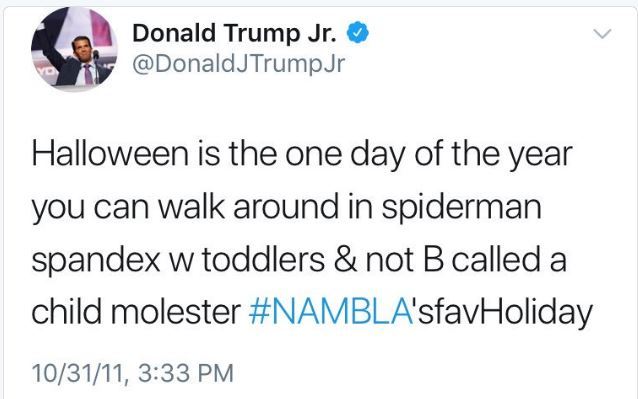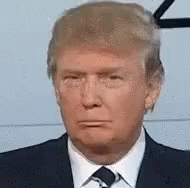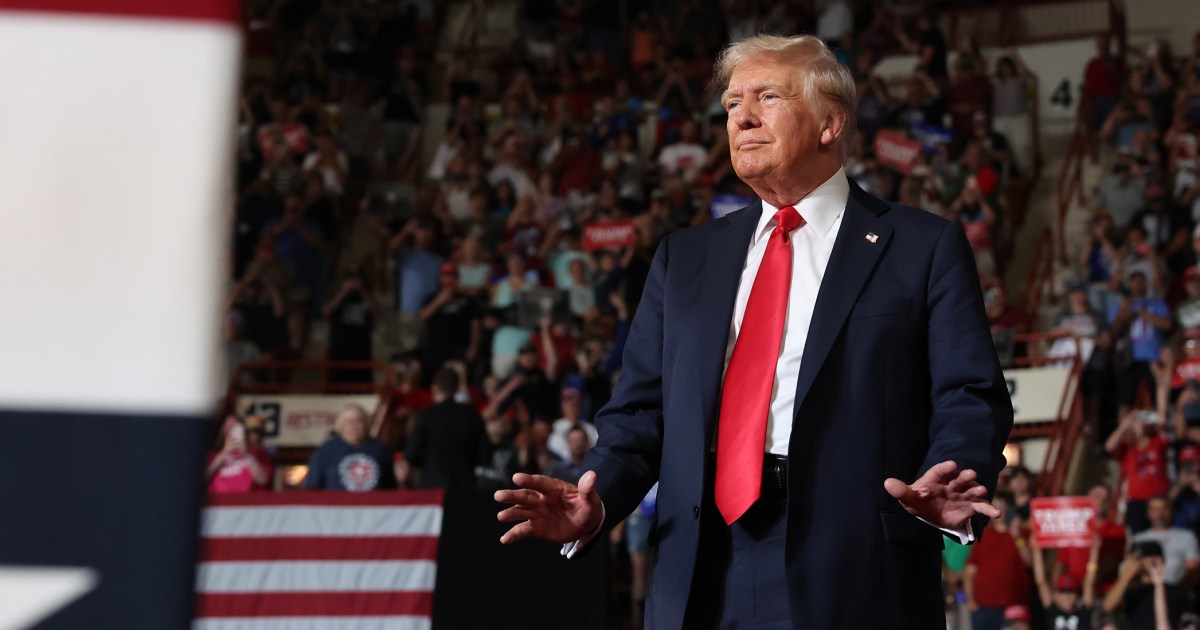Moyers: What’s your take on how he makes increasingly bizarre statements that are contradicted by irrefutable evidence to the contrary, and yet he just keeps on making them? I know some people in your field call this a delusional disorder, a profound loss of contact with external reality.
Lifton: He doesn’t have clear contact with reality, though I’m not sure it qualifies as a bona fide delusion. He needs things to be a certain way even though they aren’t, and that’s one reason he lies. There can also be a conscious manipulative element to it. When he put forward, and politically thrived on, the falsehood of President Obama’s birth in Kenya, outside the United States, he was manipulating that lie as well as undoubtedly believing it in part, at least in a segment of his personality. In my investigations, I’ve found that people can believe and not believe something at the same time, and in his case, he could be very manipulative and be quite gifted at his manipulations. So I think it’s a combination of those.
Moyers: How can someone believe and not believe at the same time?
Lifton: Well, in one part of himself, Trump can know there’s no evidence that Obama was born in any place but Hawaii in the United States. But in another part of himself, he has the need to reject Obama as a president of the United States by asserting that he was born outside of the country. He needs to delegitimate Obama. That’s been a strong need of Trump’s. This is a personal, isolated solipsistic need which can coexist with a recognition that there’s no evidence at all to back it up. I learned about this from some of the false confessions I came upon in my work.
Moyers: Where?
Lifton: For instance, when I was studying Chinese communist thought reform, one priest was falsely accused of being a spy, and was under physical duress — really tortured with chains and in other intolerable ways. As he was tortured and the interrogator kept insisting that he was a spy, he began to imagine himself in the role of a spy, with spy radios in all the houses of his order. In his conversations with other missionaries he began to think he was revealing military data to the enemy in some way. These thoughts became real to him because he had to entered into them and convinced the interrogator that he believed them in order to remove the chains and the torture. He told me it seemed like someone creating a novel and the novelist building a story with characters which become real and believable. Something like that could happen to Trump, in which the false beliefs become part of a panorama, all of which is fantasy and very often bound up with conspiracy theory, so that he immerses himself in it and believing in it even as at the same time recognizing in another part of his mind that none of this exists. The human mind can do that.
Moyers: It’s as if he believes the truth is defined by his words.
Lifton: Yes, that’s right. Trump has a mind that in many ways is always under duress, because he’s always seeking to be accepted, loved. He sees himself as constantly victimized by others and by the society, from which he sees himself as fighting back. So there’s always an intensity to his destructive behavior that could contribute to his false beliefs.
Moyers: Do you remember when he tweeted that President Obama had him wiretapped, despite the fact that the intelligence community couldn’t find any evidence to support his claim? And when he spoke to a CIA gathering, with the television cameras running, he said he was “a thousand percent behind the CIA,” despite the fact that everyone watching had to know he had repeatedly denounced the “incompetence and dishonesty” of that same intelligence community.
Lifton: Yes, that’s an extraordinary situation. And one has to invoke here this notion of a self-determined truth, this inner need for the situation to take shape in the form that the falsehood claims. In a sense this takes precedence over any other criteria for what is true.
Moyers: What other hazardous patterns do you see in his behavior? For example, what do you make of the admiration that he has expressed for brutal dictators — Bashar al-Assad of Syria, the late Saddam Hussein of Iraq, even Kim Jong Un of North Korea — yes, him — and President Rodrigo Duterte of the Philippines, who turned vigilantes loose to kill thousands of drug users, and of course his admiration for Vladimir Putin. In the book Michael Tansey says, “There’s considerable evidence to suggest that absolute tyranny is Donald Trump’s wet dream.”
Lifton: Yes. Well, while Trump doesn’t have any systematic ideology, he does have a narrative, and in that narrative, America was once a great country, it’s been weakened by poor leadership, and only he can make it great again by taking over. And that’s an image of himself as a strongman, a dictator. It isn’t the clear ideology of being a fascist or some other clear-cut ideological figure. Rather, it’s a narrative of himself as being unique and all-powerful. He believes it, though I’m sure he’s got doubts about it. But his narrative in a sense calls forth other strongmen, other dictators who run their country in an absolute way and don’t have to bother with legislative division or legal issues.
Moyers: I suspect some elected officials sometimes dream of doing what an unopposed autocrat or strongman is able to do, and that’s demand adulation on the one hand, and on the other hand, eradicate all of your perceived enemies just by turning your thumb down to the crowd. No need to worry about “fake media” — you’ve had them done away with. No protesters. No confounding lawsuits against you. Nothing stands in your way.
So he says, in his famous phrase, ‘Only I can fix it!’ That’s a strange and weird statement for anybody to make, but it’s central to Trump’s sense of self and self-presentation.
— ROBERT JAY LIFTON
Lifton: That’s exactly right. Trump gives the impression that he would like to govern by decree. And of course, who governs by decree but dictators or strongmen? He has that impulse in him and he wants to be a savior, so he says, in his famous phrase, “Only I can fix it!” That’s a strange and weird statement for anybody to make, but it’s central to Trump’s sense of self and self-presentation. And I think that has a lot to do with his identification with dictators. No matter how many they kill and no matter what else they do, they have this capacity to rule by decree without any interference by legislators or courts.
In the case of Putin, I think Trump does have involvements in Russia that are in some way determinative. I think they’ll be important in his removal from office. I think he’s aware of collusion on his part and his campaign’s, some of which has been brought out, a lot more of which will be brought out in the future. He appears to have had some kind of involvement with the Russians in which they’ve rescued him financially and maybe continue to do so, so that he’s beholden to them in ways for which there’s already lots of evidence. So I think his fierce impulse to cover up any kind of Russian connections, which is prone to obstruction of justice, will do him in.









